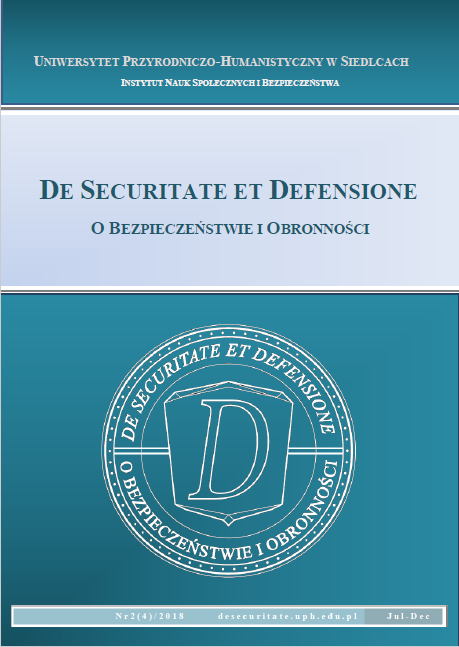Mocarstwowa polityka Federacji Rosyjskiej współczesnym zagrożeniem dla bezpieczeństwa Polski i regionu Morza Bałtyckiego
Słowa kluczowe:
Russian Federation, military threats, nuclear weapons, security policy, defenceAbstrakt
Russia has always carried out activities which strengthened its geostrategic position in the world. When the international order was transformed after “the cold war”, Russia began to perceive the post-soviet territories as its closest zone of influence. After the break out of the war in Ukraine and then the annexation of Crimea, the Baltic states and Poland had no doubt concerning a direct threat from Russia. Currently European countries are aware that Russia wages wars on many fronts. Although they have not been actually declared, they are really taking place. It is a cybernetic, diplomatic, hybrid and propaganda war. However, the greatest threat is the nuclear arsenal that Russia possesses. Stability in the region is ensured by the North Atlantic Treaty Organization, whose policy is a response to the aggressive actions of the Russian Federation, which threaten the security of the countries of the Baltic Sea region
Pobrania




